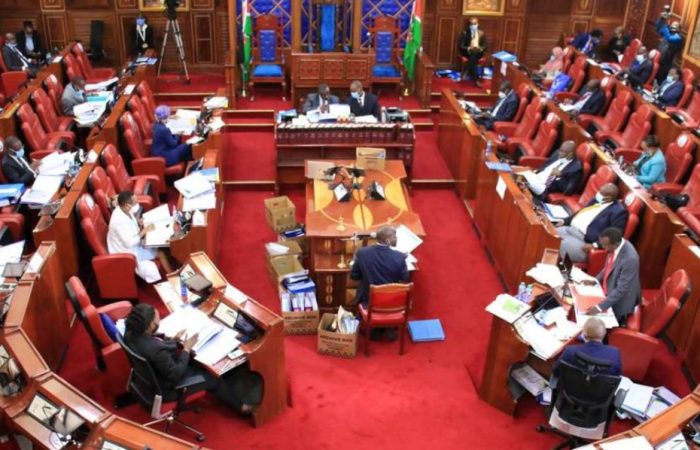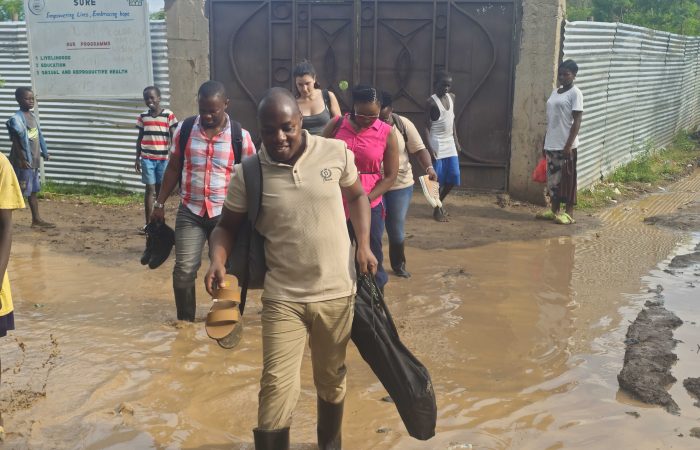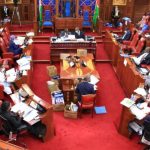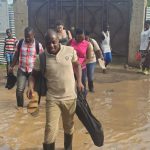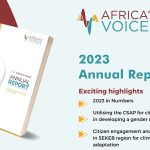Every year on 8th March, the world marks International Women’s Day (IWD). This is a day when we should all renew our commitment to gender equality.
This year’s (2022) theme is Gender Equality Today for a Sustainable Tomorrow. It should serve as a stark reminder to all of us to assess and promote issues that are most important to the advancement of gender equality.
At Africa’s Voices Foundation (AVF), our unique interactive radio and SMS methodology plays the sacrosanct role of placing women’s voices at the heart of decision making and enabling them to be the drivers of social change. Using the approach, women are at the center of challenging the norms that underpin harmful practices in the communities like female genital mutilation, early marriages among others.
Unlike the conventional community engagement approaches, the AVF methodology transcends many systemic barriers to enable women to participate in decision making while at the same time pursuing their daily duties, by simply accessing a phone of whichever description and radio.
The AVF approach uses interactive radio shows (radio dialogues in combination with SMS feedback) to enable women to hold their leaders to account by asking the hard questions. By allowing them to text their views to a free short code, the approach allows for large-scale consultations and provides evidence of women’s opinions. AVF analyses these views using rigorous social science research and presents them in a form that supports policy action by authorities.
What we have done
Working with World University Service of Canada (WUSC), Africa’s Voices is placing gender equality at the heart of education in Kakuma and Dadaab refugee camps, located North of Kenya, approximately 500 Kilometers from Kenya’s capital city, Nairobi. For the girls in the camps, displacement, cultural beliefs, extreme poverty, and early marriages have made going to school an arduous task. However, the lives of tens of thousands of refugee and host communities adolescent girls (12-17 years old) and young women (18-35 years) are now changing for the better, thanks to AVF’s work.
In Kalobeyei settlement – Kakuma, Africa’s Voices is empowering girls through an Interactive Radio and Mentorship Approach under the WUSC’s Learning through Education and Access to Employment Pathways (LEAP) project. The project was initiated in February 2021, as a response to the predicament faced by adolescent girls and young women (18-35) in the refugee and host communities’ settings in Kalobeyei settlement in accessing education and livelihoods. AVF is improving learning outcomes for adolescent girls and contributing to increased equitable participation of young women (I8-35 years old) in the formal and informal workforce. One year down the road, tremendous successes have been recorded and tides are changing, if the participants’ voices received are anything to go by. The refugee and host communities in Kalobeyei are now appreciating the value of girls’ education and supporting them to go to school. On the other hand, the young women (18-35 years) are now yearning for financial independence and vocational training that were previously perceived to be a preserve for men, thanks to the AVF’s radio shows and mentorship.
In addition, from October 2019 – May 2021, under the WUSC’s Kenya Equity in Education Project (KEEP II), AVF deployed an interactive radio and SMS approach, coupled with on-ground sessions i.e listening groups to support refugee girls and the host communities from Kakuma and Dadaab refugee camps to access education. Through the AVF’s methodology, norms that underpin practices that prevent girls from accessing education were challenged and positive voices amplified during radio sessions that involved guests drawn from the community.
A total of 37,051 SMS were received from 8,702 participants. 116 radio shows were aired in the two camps, and 228 listening groups were conducted and attracted 4,645 girls. An estimated listenership of 145,000 was reached through radio shows. At the end of the program, we received an SMS from a parent who had dropped their plan of marrying their daughter, but taking her to school, after being influenced by AVF’s radio shows.
“Now that we have finished the mentorship programmes, when I go home I will help other girls. As girls we always tell stories and discuss amongst ourselves. Myself with the information I have been taught, I will be able to share with them, impart on them and from that they will be upright and confident girls,” Grade 5, 14 Years.
Africa’s Voices has also deployed the methodology in Somalia to ensure Gender Equality and Social Inclusion (GESI) approaches to tackle COVID-19 under the flagship Imaqal “Listen to me,” project. 39,210 participants (including women) took part in the discussions, by sending 150,975 SMS. In addition, the approach was deployed to respond to the need for greater public awareness regarding conflict drivers and to gather citizen feedback on proposed solutions in Galmudug. 40.3% participants were women.
For the world to live true to the aspiration 2022 International Women’s Day theme, gender equality must be enshrined in key decision making processes. Africa’s Voices will remain a trusted partner in listening to women’s voices in Kenya and Somalia, hence mainstreaming gender equality in programming and development initiatives.
Photo by World Bank.
